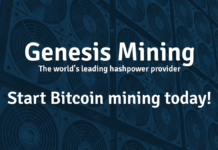Blockchain technology finally provides the tool that can allow social networks to reward users for their network contributions and at the same time give them complete control of how their personal data is used.
The Indorse platform, which uses Ethereum as its compute engine and the Inter Planetary File System (IPFS) as its storage mechanism, uses rewards and a reputation system to encourage members to contribute their skills and “indorse” those of other members.
Led by a team of experienced blockchain entrepreneurs, engineers, consultants and fintech experts who believe that the existing model of how people interact with online social networks is deeply unfair towards the end user and flawed in how information is accurately portrayed, Indorse enables members to benefit from the time they spend curating their digital lives and leverage their attention, which is in higher demand than at in any time in history.
Such a platform, which is currently undergoing an ICO, has the potential to become a more vibrant social network for professionals and create a more opportune medium for advertisers. Advertisers will be incentivized to buy space on the platform using Indorse (IND) tokens.
Indorse’s talent acquisition revenue and advertising models distribute profits to the active community members as rewards for continually posting verifiable information and for verifying the information of others.
Beyond being paid in tokens, the identity and personal brand that members build for themselves on Indorse will be portable into other social networks and (D)apps. This allows the identity that a member builds on Indorse to be an asset in and of itself.
Indorse Pte. Ltd., a Singapore-based blockchain company, is developing Indorse under the leadership of its founders, Guarang Torvekar, CTO, and David Moskowitz, CEO. Torkevar co-organized the Ethereum Singapore Meetup while Moskowitz co-organized the Bitcoin Singapore Meetup.
Recognizing Existing Deficiencies
Torkevar and Moskowitz recognized concerns about data protection, personal privacy and information ownership undermining the value of existing social media networks. This is unfortunate, since the value of a social network is based on the number of users. Interactions build profiles, and members’ ability to spend money attracts advertisers.
“Networks such as LinkedIn (and of similar service offerings) have never been able to pass the litmus test of accurate sharing of information, leave aside letting its users also benefit from the growth,” said Indorse COO Dipesh Sukhani. “One cannot simply rely on the information put up; every single claim has to be tested separately, which means time costs! As an ex-Big4 consultant, I was always on a hunt for my clients to write me testimonials, so as to add that extra edge to my credentials. We at Indorse make that step the first stepping stone, i.e., community based endorsement.”
Indorse has focused on the central weakness of the current social media network model. Social media network providers look to advertising for revenue by requiring members to grant rights to their information to the provider and selling these rights to advertisers. Hence, social media is not free, but paid for by intrusions of privacy.
Centralization of social media also places the platform under the control of its providers. The concentration of power in the hands of platform providers leads to the potential for abuse. Facebook moderators, for instance, censored a picture showing atrocities of the Vietnam War due to nudity, missing the point of the photograph’s intent.
Indorse, by providing a decentralized, transparent platform, removes the potential for this type of abuse.
Recognizing A Solution
Torkevar and Moskowitz also recognized that Ethereum and similar technologies are allowing new economic models that will enable more people to benefit from the products they consume. Indorse will allow content contributors to be rewarded for their content while those making incorrect “indorsements” will be penalized.
“We envision a serverless, decentralized future, where the users will build their profiles and profit from their reputation,” Sukhani said. “This future will need a decentralized platform where others can judge the quality of a person’s profile not just by where they have gone to school, but what they have actually done in their professional and personal lives.”
Each member can act as both a claimant and a moderator on the platform.
The claimant makes a “claim” connected to his profile that can be either professional or personal. With every claim, the claimant attaches at least one proof of information. The moderators then verify and either “indorse” it or flag it.
Key Mechanism: ‘Indorse Score’
A unique Indorse functionality called “Indorse Score,” similar to proof of stake, will allow claimants to stake their claims. If the claim is approved or the “indorsement” supported by other users, the member’s reputation increases.
A claimant’s rewards are automatically converted to IND tokens that are paid to the platform for advertising and other services obtained by business customers for the period.
Members will be reluctant to participate in the “indorsing” process if the claim is too subjective since they would be more likely to reduce their Indorse Score.
A member who continues to indorse against the majority, either through frivolous claims or by indorsing in a dishonest manner, will see their Indorse Score suffer. Once it reaches a minimum score, the member will only be able to improve the score by making “correct” indorsements over a period of time.
When a member makes a claim, they will either choose random indorsements or get the claim verified from an influencer on the platform. To be verified, the member has to pay with their Indorse Rewards or their SCR tokens. If they get random indorsements, the platform chooses indorsers based on their level of separation from the member.
Creating A Community Through A Token Sale
Early supporters in the token sale, which began Aug. 8, 2017, will receive SCR tokens in addition to IND tokens. They will also begin with a minimum Indorse Score that will allow them to indorse one claim at a time. It will take time to earn a higher Indorse Score.
The presale of 17,000 ETH was completed in a matter of days, and 50% of the hard cap has already been met.
The initial sale of IND tokens will be made via ETH. One thousand IND tokens will be distributed to participants per 1 ETH. IND tokens sent to sale participants will comprise about 35% of the total supply, about 37.71% of the total supply will be set aside for future use, while 25% will be held by the network administrators. The remaining 2.29% were issued to seed round supporters. The token sale exceeded its 15,000 minimum by Aug. 13.
Third Party (D)apps
The platform will integrate with several third party (D)apps that will allow Indorse to integrate with the larger Ethereum community to build a bigger network effect.
The combination of a more decentralized social network that protects user privacy and rewards them or their network contributions will create a more vibrant network that will naturally attract advertisers who want visibility on the network.
This is a sponsored story.
Our Social Networks: Facebook Instagram Pinterest Reddit Telegram Twitter Youtube






